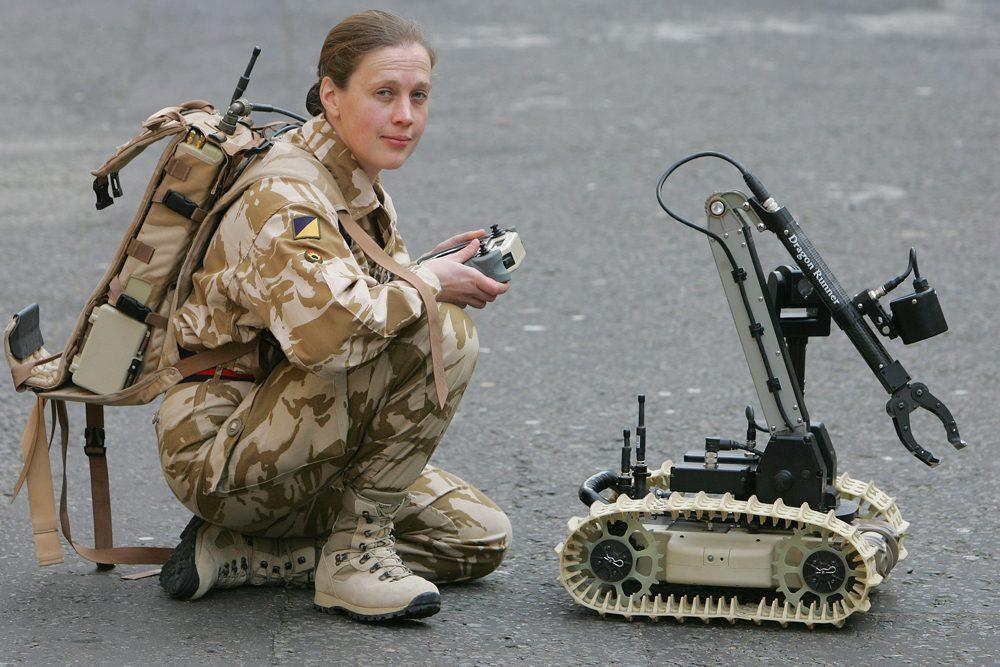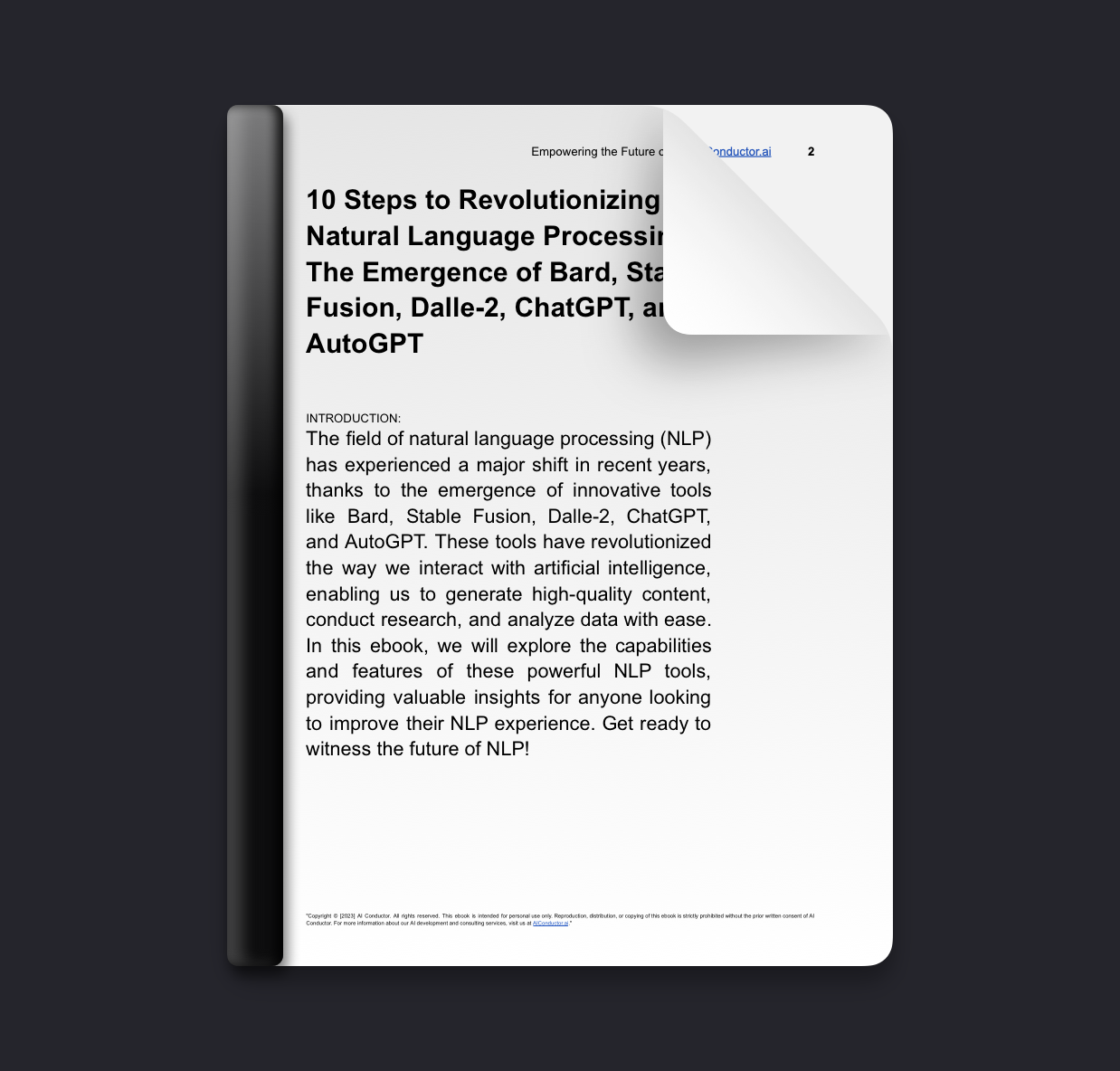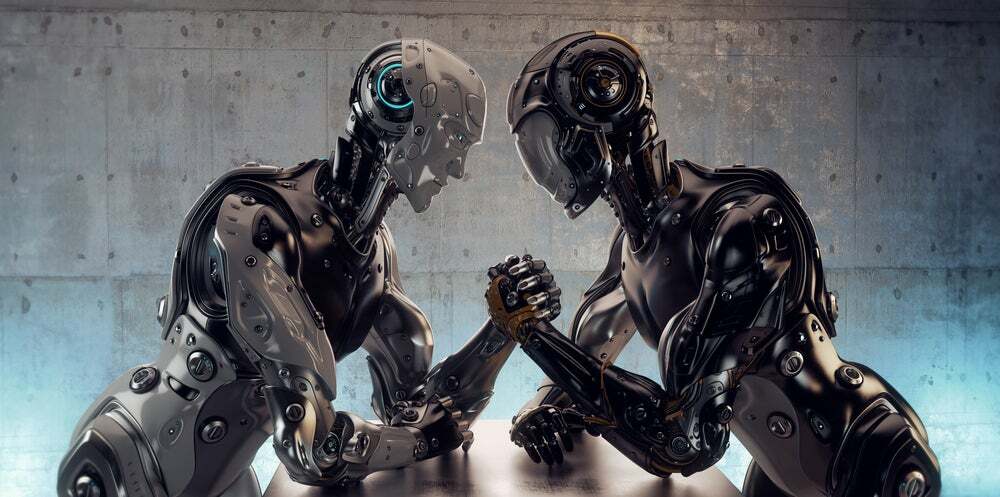We asked:
How will artificial intelligence shape the future of warfare?
The Gist:
Eric Schmidt, the former executive chairman of Google, is working on a project to create a powerful AI-driven military system. This system will be able to analyze data from numerous sources and make decisions quickly, allowing it to detect and respond to threats faster than ever before. This system could revolutionize the way wars are fought and help keep soldiers and civilians safe.

Decoded:
The threat of artificial intelligence (AI) in warfare is no longer a topic reserved for science fiction films or futurists with wild imaginations. In a world of rapidly advancing cutting-edge technology, the development of AI-enabled weapons systems has gone from theory to reality in a matter of weeks.
As a result, a new arms race is on among world powers in the hopes of creating the perfect AI-warfighting machine. One of the leading forces behind this arms race is Eric Schmidt, a well-known tech leader.
Schmidt founded Alphabet, one of the leading technology companies in the world. Using his considerable resources, he has recruited experts from all over the world to help him create the perfect AI-warfighting machine.
What Schmidt and his team are looking to achieve is a military robot with the ability to engage in combat autonomously. Such a robot could hypothetically be used to serve as a first line of defense in a conflict, or could even be weaponized to take out targets that conventional weapons can’t reach.
However, this kind of tech carries a lot of ethical dilemmas. For example, if an AI-warfighting machine were to engage in combat, how would it decide who to target and attack? Who would be responsible for those decisions? Who would be held accountable for the resulting casualties?
With these issues in mind, Schmidt's team is working to develop an AI-warfighting machine that has a set of ethical guidelines built into its programming. The project is in its early stages, but Schmidt believes that AI has the potential to be an incredibly positive force in the future of warfare.
Whether or not Schmidt succeeds in creating the perfect AI-warfighting machine may depend on many factors, but ultimately the lives of soldiers and civilians in the world’s conflict zones may depend on it. It’s important to recognize the consequences of developing such technology and the impact they could have on global security.
By recognizing the important responsibility that comes with such technological advances, Schmidt is setting the bar for responsible AI development and use. Ultimately, only time will tell if he succeeds in creating the perfect AI-warfighting machine.
As a result, a new arms race is on among world powers in the hopes of creating the perfect AI-warfighting machine. One of the leading forces behind this arms race is Eric Schmidt, a well-known tech leader.
Schmidt founded Alphabet, one of the leading technology companies in the world. Using his considerable resources, he has recruited experts from all over the world to help him create the perfect AI-warfighting machine.
What Schmidt and his team are looking to achieve is a military robot with the ability to engage in combat autonomously. Such a robot could hypothetically be used to serve as a first line of defense in a conflict, or could even be weaponized to take out targets that conventional weapons can’t reach.
However, this kind of tech carries a lot of ethical dilemmas. For example, if an AI-warfighting machine were to engage in combat, how would it decide who to target and attack? Who would be responsible for those decisions? Who would be held accountable for the resulting casualties?
With these issues in mind, Schmidt's team is working to develop an AI-warfighting machine that has a set of ethical guidelines built into its programming. The project is in its early stages, but Schmidt believes that AI has the potential to be an incredibly positive force in the future of warfare.
Whether or not Schmidt succeeds in creating the perfect AI-warfighting machine may depend on many factors, but ultimately the lives of soldiers and civilians in the world’s conflict zones may depend on it. It’s important to recognize the consequences of developing such technology and the impact they could have on global security.
By recognizing the important responsibility that comes with such technological advances, Schmidt is setting the bar for responsible AI development and use. Ultimately, only time will tell if he succeeds in creating the perfect AI-warfighting machine.

Essential Insights:
Three-Word Highlights
AI, warfare, Eric Schmidt
Winners & Losers:
Pros:
1. AI-driven war machine could make combat more precise and efficient.
2. AI could reduce the risk of human casualties in war.
3. AI could help with decision-making in complex scenarios.
Cons:
1. AI-driven war machines could be vulnerable to hacking or manipulation.
2. AI could lead to an increase in the number of civilian casualties.
3. AI could lead to a reliance on technology that could be difficult to control.
Bottom Line:
The bottom line is that Eric Schmidt is leveraging his experience in the tech industry to develop an AI-driven system that could revolutionize the way the US military wages war.
Ref.
Join The Conversation!
test





